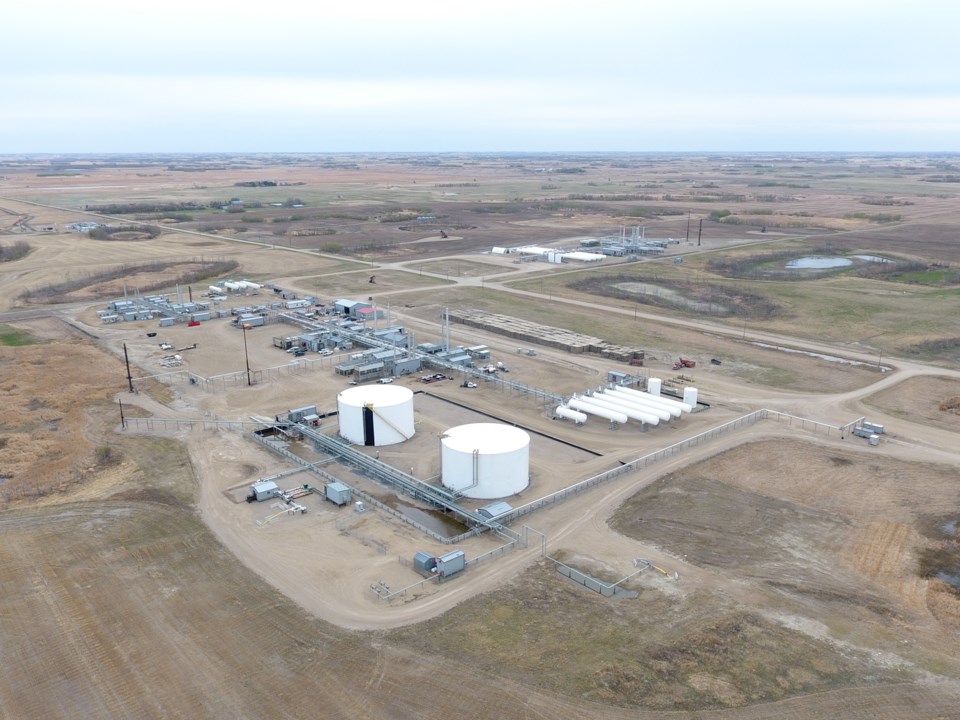Calgary – Crescent Point will be spending less in the third quarter and moving that money to later in the year, according to the company’s second quarter press release and conference call on July 26. It will also be focusing on returns instead of growth for the sake of growth, according to its interim CEO and president, Craig Bryksa.
Crescent Point's new team is focused on a transition plan that includes revising and prioritizing the company's strategy based on key value drivers, including balance sheet improvement, disciplined capital allocation and cost reductions.
Some of this thinking has already been evident, as the company, as of July 26, was running 13 drilling rigs in Canada, according to sister publication Rig Locator (riglocator.ca). While still ranking third in Canada, that’s a reduction of almost half of what the company ran for substantial parts of 2017, when its rig count often led the nation at around 24 to 26 rigs.
In the accompanying conference call, Bryksa said of their new leadership team, “I’ll speak for the team here and say we’re all taking a new, fresh approach as we conduct our full review of the business.
“As part of our transition period, we are examining our asset base, business strategy and organisational structure, with a focus on key value drivers including balance sheet improvement, disciplined capital allocation, and cost reductions.”
The company will put forward its plans as soon as possible.
The release said, “The company has also begun streamlining its organizational structure and is exploring areas for improvement within each level of the organization. Following this review process, Crescent Point expects to identify value enhancing opportunities, including future asset dispositions, the optimization of its capital program and a reduced cost structure.
“During the initial stages of its review, the new team rescheduled its capital investment plans for the remainder of 2018. As such, a portion of the capital expenditures previously planned for third quarter 2018 has been moved to later in the year. This rescheduling allows for more consistent levels of activity into 2019 without requiring capital expenditures to be increased in 2018. This decision also provides cost, staffing, logistics and safe operations benefits to the company. Going forward, Crescent Point intends to allocate capital in a manner designed to achieve consistent activity levels.”
As a result of this rescheduled capital program, production volumes that were previously budgeted to come on stream earlier in the second half of 2018 are now expected to come on line later in the year or in first quarter 2019, thereby affecting the 2018 annual average production. In a change that sees a shift in focus from total production numbers to economics, Crescent Point elected to shut in approximately 1,000¬Ýbarrels of oil equivalent per day (boepd) of uneconomic production as it focuses on returns versus volume growth. As a result of these two changes, Crescent Point is adjusting its 2018 annual average production guidance by approximately two percent to 177,000 boepd from 181,000 boepd. The company reaffirms its annual capital expenditures guidance at $1.775 billion and remains committed to aligning its cash outflows with inflows.
The board’s formal process of appointing the company’s president and CEO remains ongoing, considering both external and internal candidates (with the assistance of a leading executive search firm). The new leadership team (led by) remain focused on reviewing the asset base, business strategy and organizational structure, the release said. This includes following key value drivers: balance sheet improvement, disciplined capital allocation and cost reductions.
To date, the team has identified and acted on certain near-term opportunities. This includes ensuring proceeds from closed dispositions were allocated toward debt reduction, streamlined executive structure with fewer members, rescheduled remaining capex program in 2018 to create a most consistent profile into 2019, shutting in the aforementioned 1,000 boepd of un-economic production, and remaining on track with capital budget and remain committed to aligning cash outflows with inflows.
“I am very excited about the future of our company and believe we have the right assets and skill set to deliver improved results," said Bryksa. "Our new team is focused on building a revised strategy that prioritizes our key value drivers, which are expected to result in improved returns, free cash flow generation and debt adjusted per share metrics."
The company recently announced dispositions of approximately $280 million (approximately 4,800 boepd).
The second quarter average production of 181,818 boepd (approximately 90 per cent oil & liquids) is in line with the company’s budget and analyst consensus. Net net was reduced by $390 million in the quarter.
“A of July 20, 2018, Crescent Point had, on average, over 40 per cent of its oil and liquids production, net of royalty interest, hedged to the remainder of 2018 and 2019, at a weighted average market price of approximately C$77 per barrel,” said Ken Lamont, chief financial officer.
The hedging is meant to protect cash flow and balance sheet. “We will continue to manage such risks rather than speculate on commodity prices,” Lamont said.
Crescent Point’s generated funds flow from operations (FFO) came in at $500.3 million ($0.91 per share). This was partially impacted by incremental severance expense of $13.5 million related to executive departures. Excluding severance, FFO was $513.8 million ($0.93 per share) versus analyst consensus (ex severance) of ~$485 million or $0.88 per share. The netbacks were $40.40 per boe.
Capital expenditures in the second quarter were $313.6 million (including approximately $239 million on drilling and development, approximately $63 million on facilities and seismic and approximately $12 million on land). There was minimal Canadian activity due to spring break-up.
The company remained active in the Uinta in Utah and North Dakota, with continued success in one-mile and two-mile horizontal well results.




